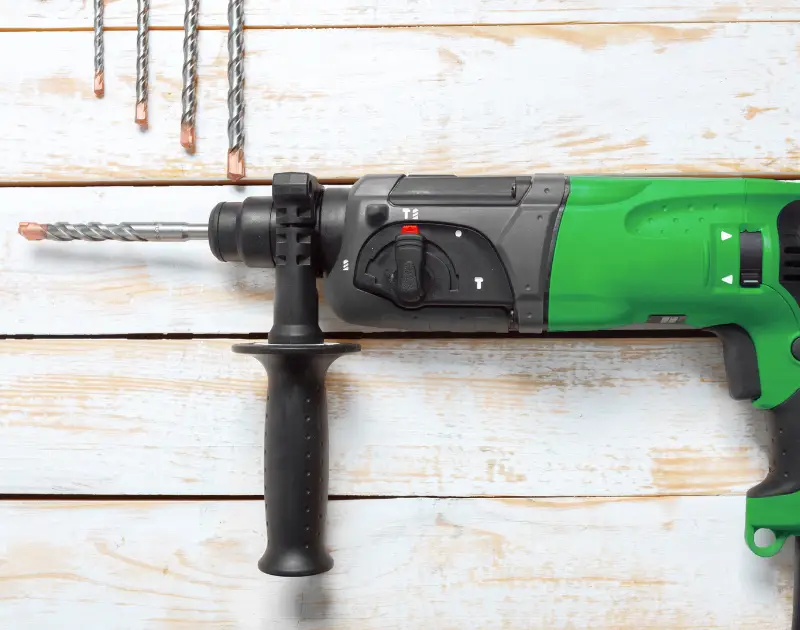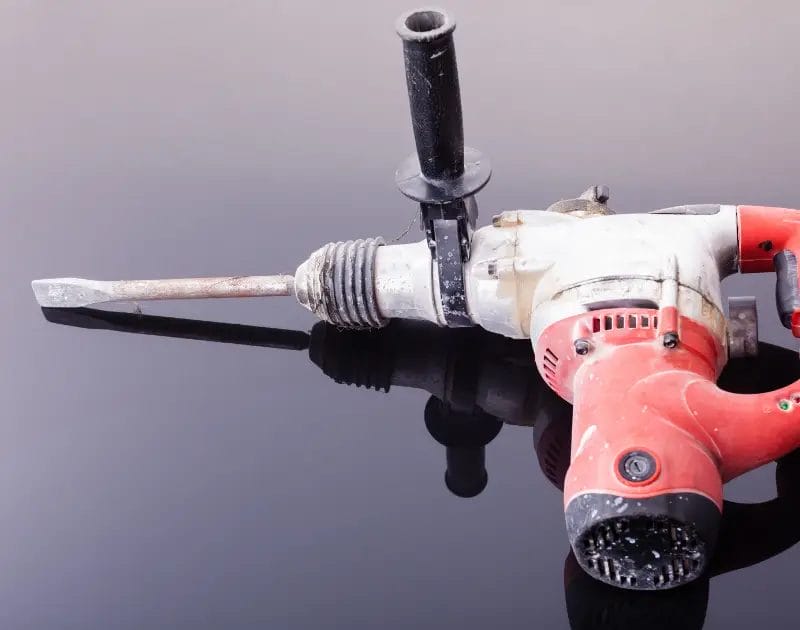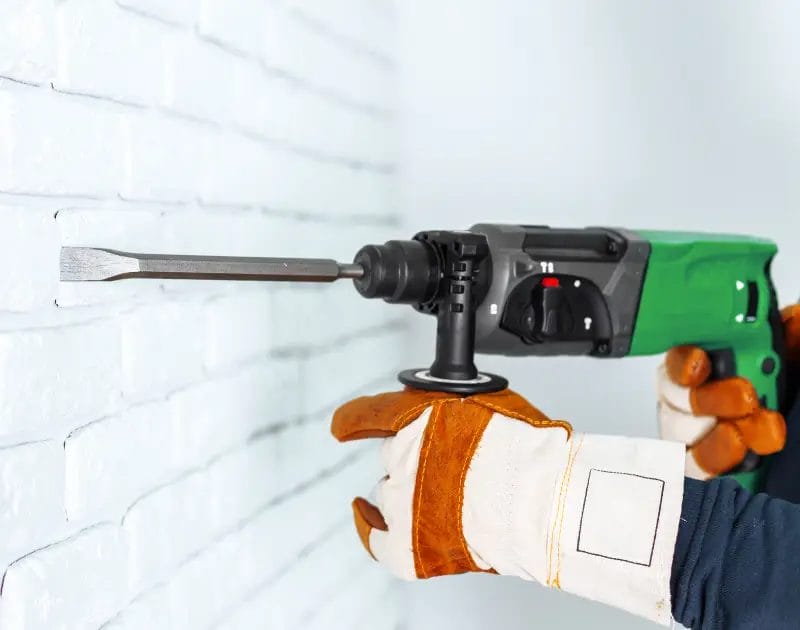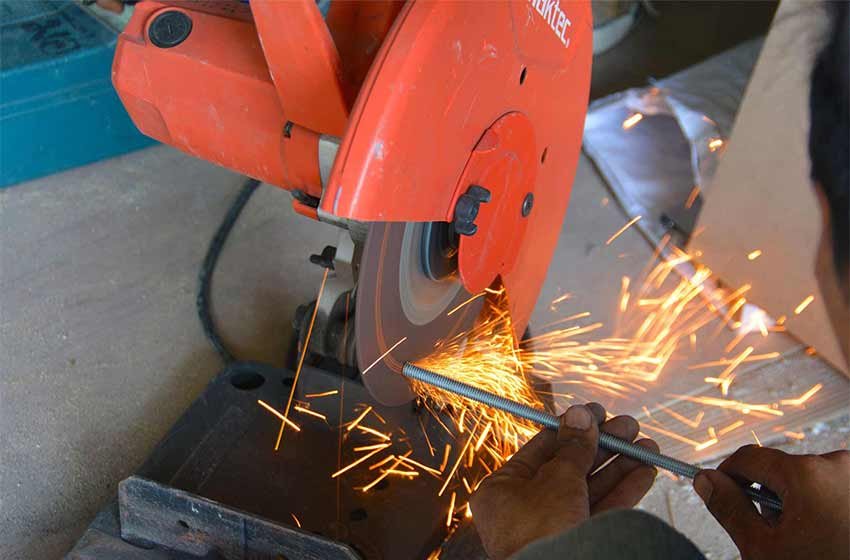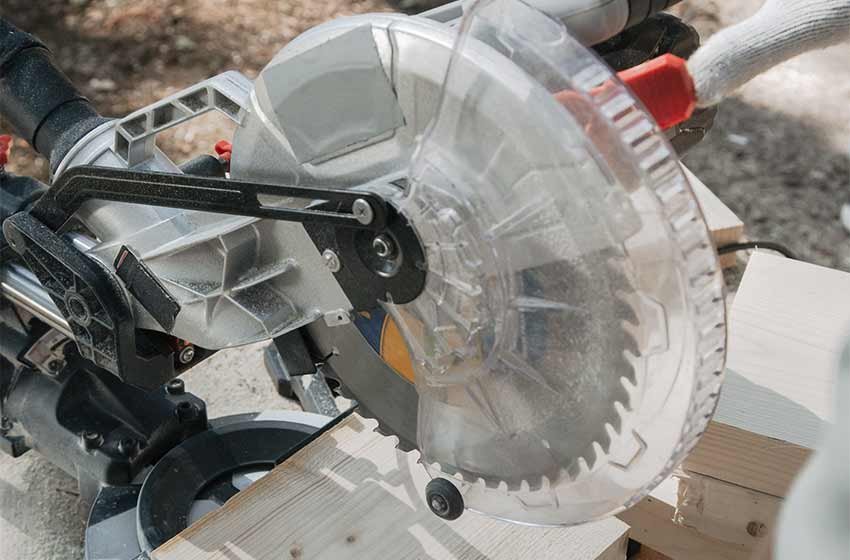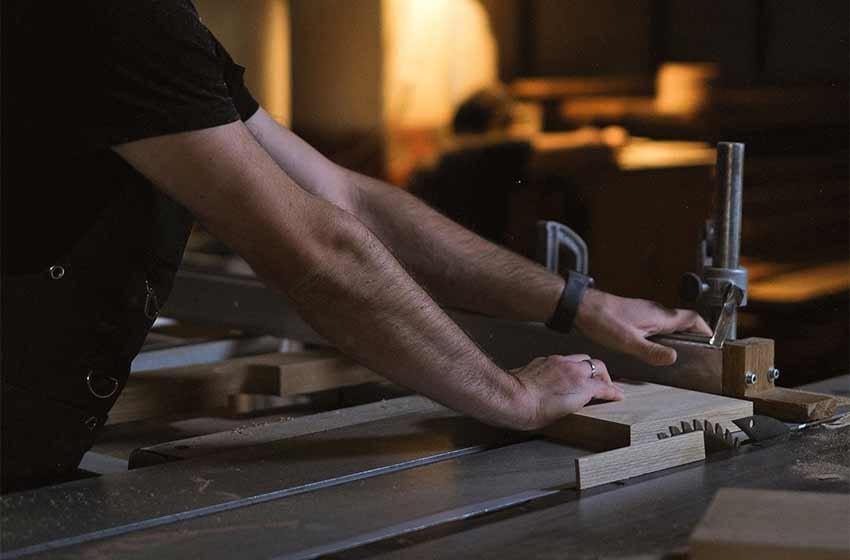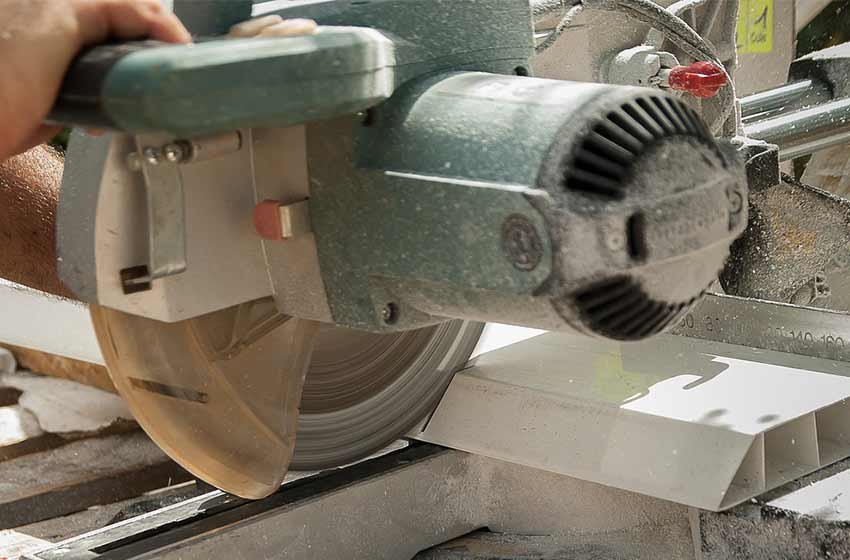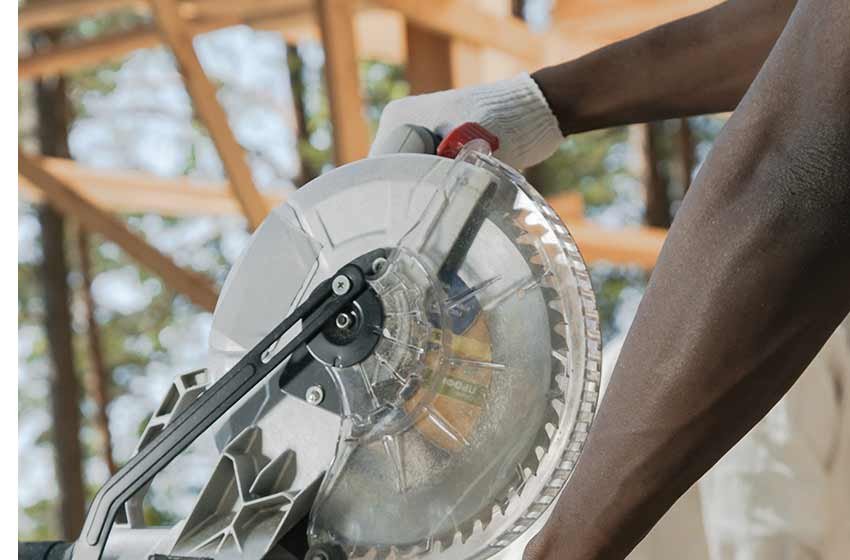How Does a Hammer Drill & Rotary Hammer Drill Differ?
If you are new to power drills, understanding the difference between rotary hammers and hammer drills can be confusing, both are great for drilling into masonry but differ slightly in their functions.
Hammer drills are excellent for drilling masonry thanks to their BPM which delivers blows into material with a combination of a spinning drill bit, rotary hammer drills on the other hand can perform this same drilling function but can also be used as a regular drill or just an air compression hammer function, they are also more powerful.
To help you decide on which type of hammer drill you need for your DIY, we have gone over how both types of drill work below and their differences, as well as comparing their pros and cons to see which drill offers more.
What Is a Hammer Drill & How Do They Work?
First off, before we start comparing the differences between a standard hammer drill and a rotary hammer drill, let's explore how hammer drills work and what they do.
Hammer drills are most suited for use on light concrete and masonry, they use a back and forth motion combined with a drilling action to break into concrete and drill holes, this power happens when the metal clutch disc plates inside of the hammer click in and out of each other.
Hammer drills are used for making 3/8-inch or larger holes in light masonry, compared to a traditional drill, hammer drills are much more powerful and better suited than a conventional drill for heavy-duty work.
What Is a Rotary Hammer Drill & How Do They Work?
Rotary hammer drills on the other hand are a more heavy-duty drill than your standard hammer drill, these drills use a cylinder of air compressed by a piston to generate power and beat the bit, these types of drills can be used with a wide range of accessories and are a preferred tool for functions such as scaling chisel as they have a hammer only mode which can turn off the rotation.
These types of drills are better for deeper holes in harder concrete and can create a larger hole size of up to 1/4" to 2" in diameter.
Main Differences Between a Rotary Hammer Drill & Hammer Drill
Now we know what both hammer drills are and how they work, we can get into comparing and highlighting the main differences between both drills.
Mechanism
As we mentioned above, both types of hammer drills use a back and forth hammering motion in combination with a spinning drilling motion to create perfect holes in hard materials.
The two differ in mechanism however a hammer drill uses two metal discs for power and can generate a blow of up to 30,000 BPM, rotary hammer drills use a piston air mechanism for more power making them a larger drill but easier to use.
Usage
Rotary hammer drills are used for professional contractor use due to their high power, this all-around tool is not essential for the average DIY-er but does come with three modes allowing you to use it as a standard drill, hammer and hammer drill.
Standard hammer drills are handy tools to have in your average DIY kit as many of them allow you to use them as a standard drill by turning off the hammer function and also as a driver allowing you to screw into masonry with ease.
Drill Accessories
Rotary hammers and hammer drills also differ when it comes to the accessories and hammer drill bits used on these devices.
Hammer drills often use SDS chucks while rotary hammer drills can be attached with these conventional drill bits too, but have more variety when used on hammer function only. When rotary hammers are used on just hammer mode they can be used with a variety of chisels attachments such as a cold chisel or spade chisel bits to make holes in concrete.
Impact Energy
Lastly, one of the most significant differences between rotary hammer drills and hammer drills is the impact energy, the better the impact energy of a rotary hammer then the more power the device has, always go for a drill that can drill large holes in masonry so as your drill does not have to work to its maximum capacity all the time.
Rotary Hammer Drills Vs Hammer Drills - Which Is The Better Tool?
Now we know the main differences between rotary hammer drills and normal hammer drills we can compare the pros and cons of each type of drill below to see which device is better.
Hammer Drills
Hammer drills have the main advantage over rotary drills in that they are often more affordable and can be used as a standard power drill as well as a driver to drive screws in light masonry. These drills are more than enough for average DIY work and the tool is available as a cordless tool too for extra freedom.
Downfalls of these drills are that they are less powerful than rotary hammer drills and can't be used with just a hammer function meaning you can't use the heavy-duty tool for actions such as chiselling.
Pros
- Affordable.
- Great for average DIY.
- Can be used for driving in screws and as a normal drill.
Cons
- Not as powerful.
- No hammer only mode.
Rotary Hammer Drills
Rotary hammer drills are better than hammer drills when it comes to power thanks to their air compression system which delivers more powerful blows than the metal disc system. These hammer drills are a go-to tool for other functions such as chiselling and are much more suited for professional DIY.
The drawbacks of rotary hammer drills in comparison to normal hammer drills are their price which is pretty expensive thanks to their extra power, these drills additionally take up a fair amount of space due to their large size and can't be used as a driver.
Pros
- More power.
- Hammer only functions.
- Suited for professional use on hard concrete.
Cons
- Can't be used as a driver.
- Expensive.
- Takes up space.
Conclusion - Which Hammer Drill Type Should I Choose?
To conclude, if you are looking for extra power and want a hammer tool that can be used on the toughest of materials, then go for a rotary hammer drill, however, for people who don't want to spend money on hammer drill tools, a standard model is more budget-friendly and should still provide you with enough power for average DIY.
Final Words
Overall, hammer drills differ from rotary hammer drills as they are less powerful and function with hammer drill disc slides to deliver blows to material, they also do not have hammer function modes, meaning the drill always rotates. Rotary hammers are better for hard masonry and allow you to use attachments such as chisels.
